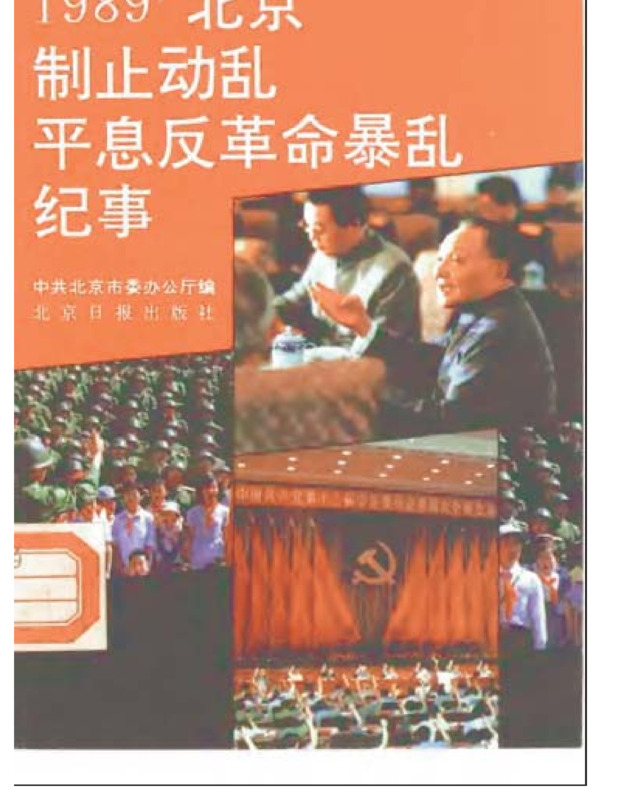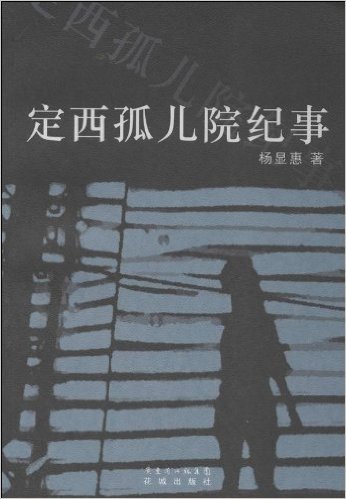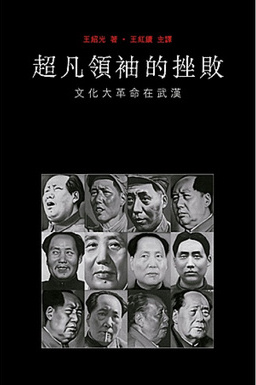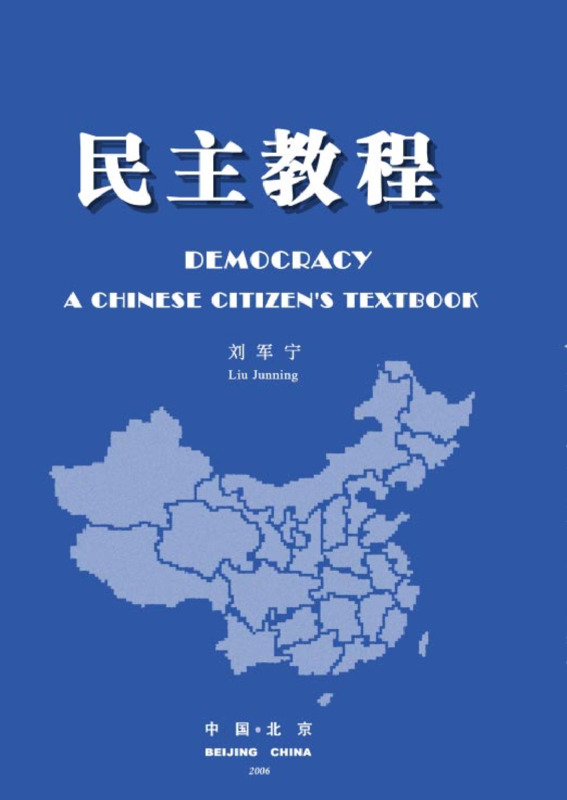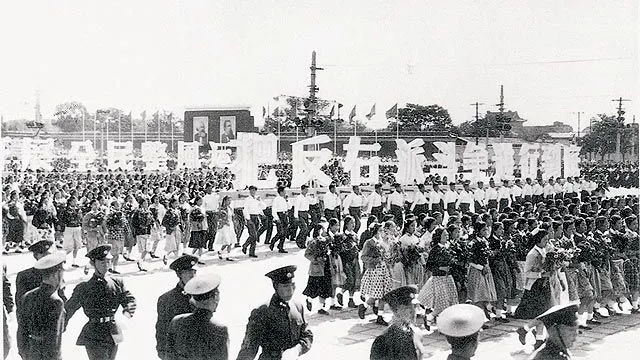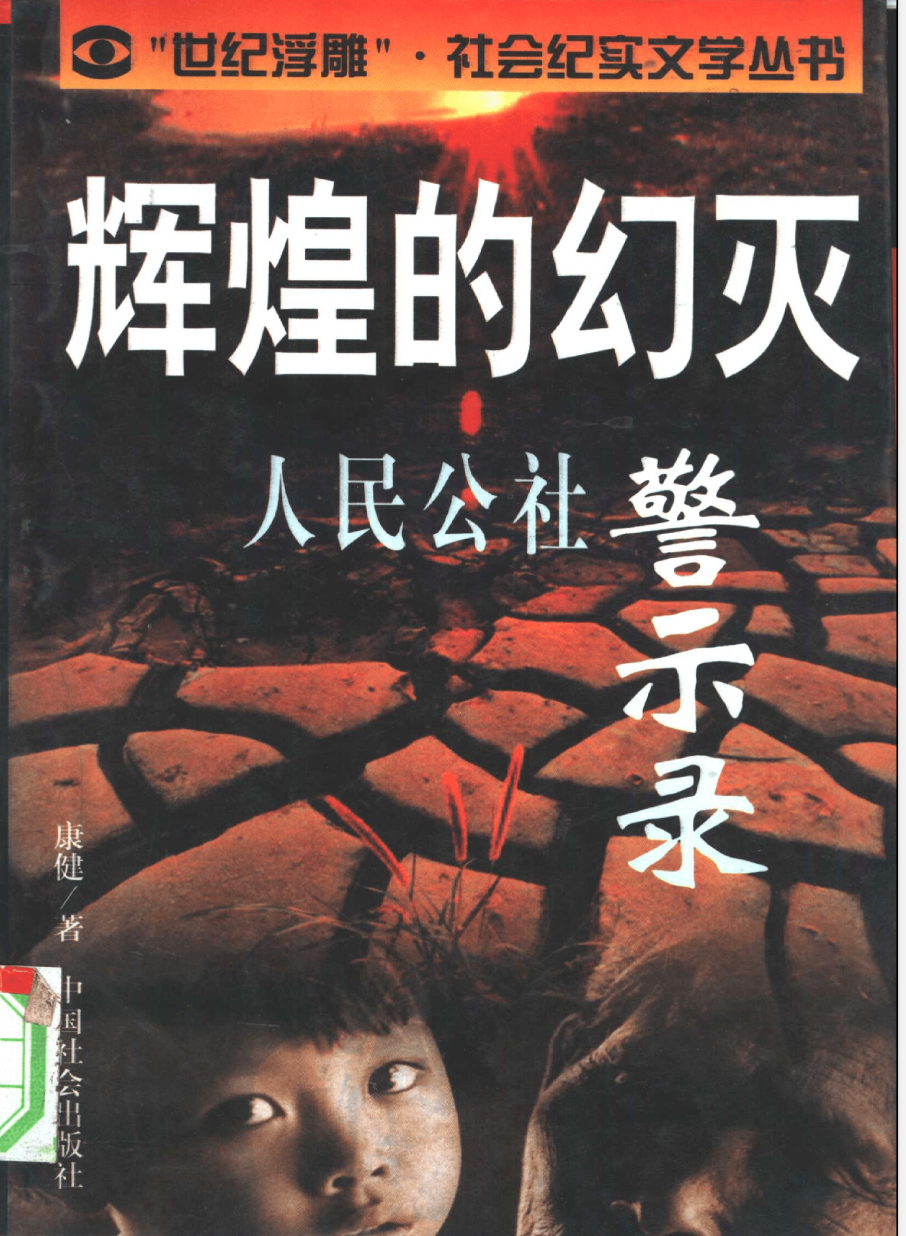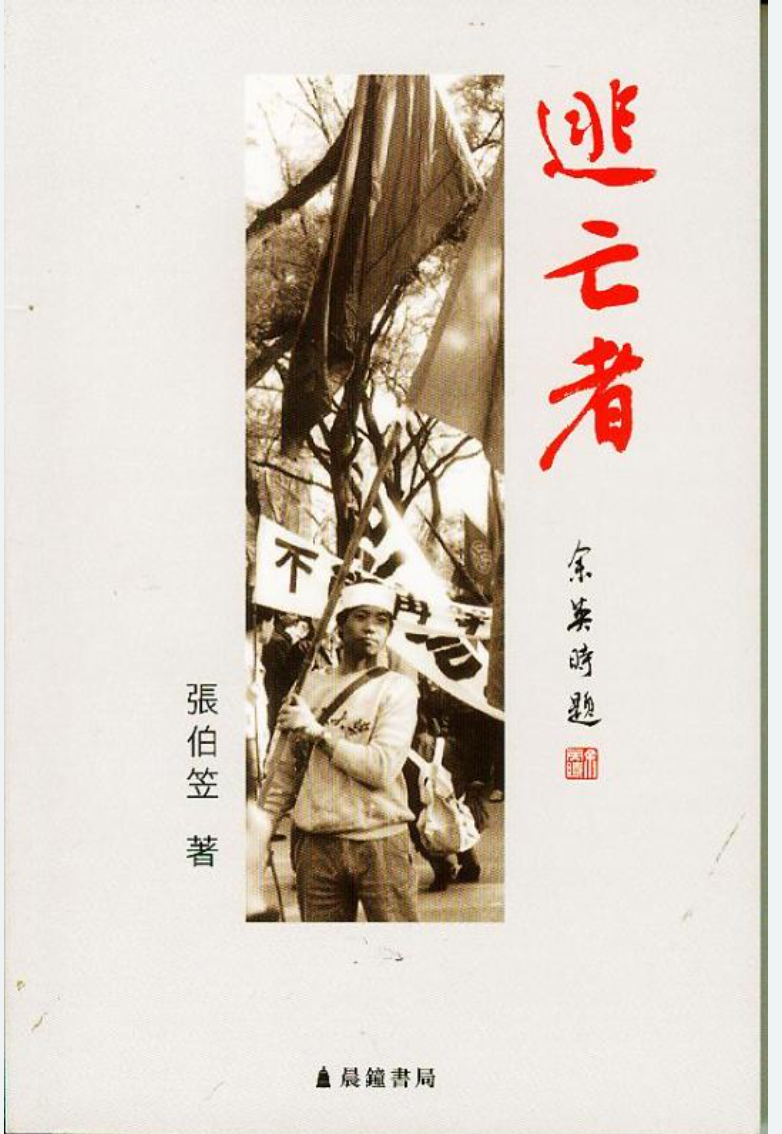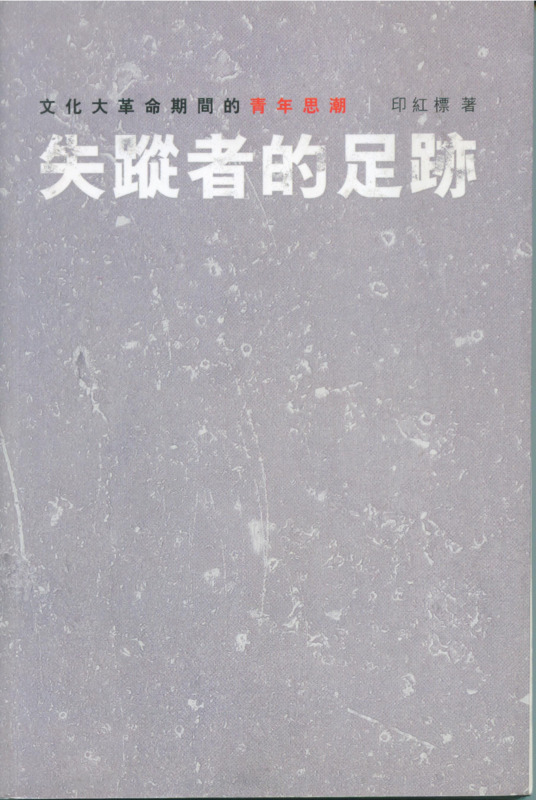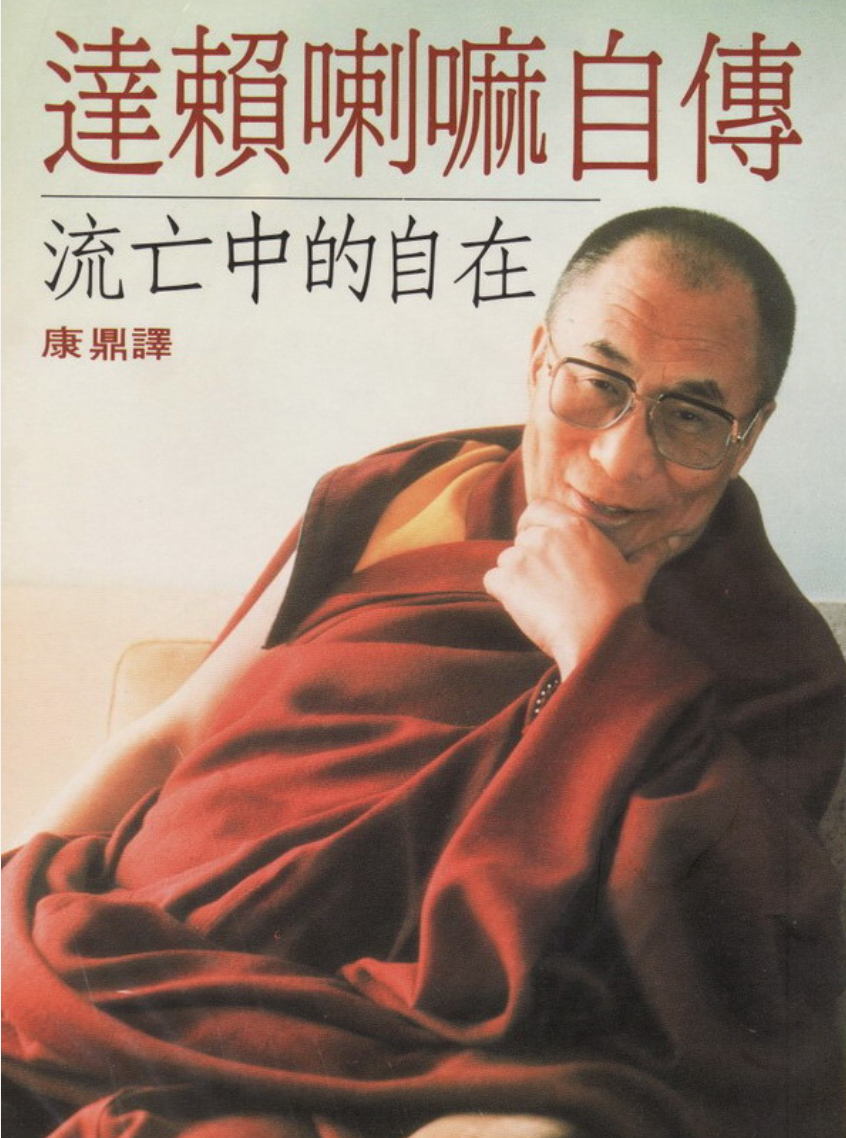Explore the collection
Showing 149 items in the collection
149 items
Book
Chronicle of the 1989 Counter-Revolutionary Rebellion in Beijing
Published in 1989 by the Beijing Daily News, this book is the Chinese government's official account and presentation of the June Fourth Incident. Officially, it describes the June 4 Incident as an upheaval and even stigmatizes it as a counter-revolutionary riot. Some of the accounts presented here need to be judged against other sources.
Book
Chronicle of the Dingxi Orphanage
After the disaster in Dingxi Prefecture, which was the hardest-hit area of Gansu Province during the 1958-1960 famine, a children's welfare institution was urgently set up in Dingxi Prefecture to take in hundreds of orphans. During the same period, children's welfare centers or "kindergartens" were set up in all counties and towns in Dingxi Prefecture, as well as in the people's communes in the hardest-hit counties. These children's welfare centers, large and small, housed about 5,000 orphans. On the basis of faithful historical facts and statements by the parties concerned, this book brings tragic scenes of starvation and death before people's eyes using straightforward description, documentary language, and a down-to-earth tone of voice.
Book
Collected Papers of Wu Yisan (1)
Writer Wu Yisan is the founder of Hong Kong's May 7 Society, an organization dedicated to the collection, research and publishing of everything related to the anti-rightist campaign in 1957,to restore and present the truth about a period of history characterized by severe persecution of remedial intellectuals. Over the years, Mr. Wu has devoted himself to compiling The Dictionary of Names of 1957 Victims. As the Chief Editor of The Hong Kong May 7 Society Publishing House, he also published The Biography of the Rightists of the May 7.
This book is a collection of his political papers, comprising more than 50 published and unpublished essays primarily written between 2004 and 2009, criticizing CCP from various perspectives, including history, current affairs, and culture.
Book
Collected Papers of Wu Yisan (2)
Writer Wu Yisan is the founder of Hong Kong Five-Seven Society, an organization established in 2007 and dedicated to the collection, research and publishing of everything related to the Anti-Rightist campaign in 1957, to restore and present the truth about a period of history characterized by severe persecution of intellectuals. Over the years, Mr. Wu has devoted himself to compiling *[The Dictionary of Names of 1957 Victims](https://minjian-danganguan.org/collection/1957%E5%B9%B4%E5%8F%97%E9%9A%BE%E8%80%85%E5%A7%93%E5%90%8D%E5%A4%A7%E8%BE%9E%E5%85%B8)*. As the Chief Editor of The Hong Kong Five-Seven Society Publishing House, he also published *The Biographies of the 1957 Rightists* and *[New Biographies of the 1957 Rightists](https://minjian-danganguan.org/collection/%E2%80%9C%E4%BA%94%E4%B8%83%E2%80%9D%E5%8F%B3%E6%B4%BE%E5%88%97%E4%BC%A0%EF%BC%88%E4%B8%8A%EF%BC%89)*.
This book is a collection of Wu’s political essays, including nearly one hundred of his published and unpublished essays and speeches between 1999 and 2017, including historical and current affairs analyses, with an emphasis on commentaries of persecuted intellectuals and political dissidents. These people are often called "traitors of China (han jian)" by CCP, but Wu Yisan argues that the CCP is the real traitor that betrays the country and its people.
Our archive also hosts another anthology of his, *[Is Chen Yi a Good Comrade](https://minjian-danganguan.org/collection/%E6%AD%A6%E5%AE%9C%E4%B8%89%E6%94%BF%E8%AE%BA%E6%96%87%E9%9B%86%EF%BC%881%EF%BC%89)*?
Book
Defeat of an Extraordinary Leader: The Cultural Revolution in Wuhan, The
This book covers the history of the Cultural Revolution in Wuhan and related analysis. Wang Shaoguang completed his doctoral dissertation of the same name (in English) in 1989, and the Chinese version of his abridged dissertation, *Rationality and Madness: The Masses in the Cultural Revolution,* was published by Oxford University Press in 1993. a Chinese version was published by The Chinese University of Hong Kong Press in 2009. Taking the Cultural Revolution in Wuhan as the main axis, the author interviewed dozens of participants in the Cultural Revolution, utilizing a large amount of original materials published during the Cultural Revolution. Combining all of this with his own personal experience, he profoundly reveals the masses' participation in the Cultural Revolution during winters, forms and laws, the mechanism of advancement and retreat, and its relationship to the general situation of the whole country.
Book
Democracy Curriculum
Written by Chinese liberal intellectual Liu Junning, this book circulated underground in 2006. The book parses the fundamentals of democracy as well as historical experience. It was quickly banned in China.
Book
Dictionary of Names of 1957 Victims
An estimated 460,000 to 1.4 million people were persecuted in the Anti-Rightist Campaign (1957-1959). The event was one of the most important political campaigns in the history of the People's Republic because it effectively silenced independent intellectual thought in the Mao era, paving the way for disasters, such as the Great Famine and the Cultural Revolution.
Wu Yisan spent more than ten years researching the lives of this campaign's victims. At 33,000 entries, the list is far from complete but it gives the human perspective on the tragedy in a scope never before attempted. Among the devastating details is the story of Qian Zhongshu, one of 20th century China's best-known writers. Qian's father, Qi Jibo, had been declared a Rightist but died before he could be publicly humiliated. So Qian Zhongshu and his brother-in-law Shi Shenghuai, were forced to attend a mass rally and be criticized in his place. They did so while holding the dead man's "spirit tablet," a piece of wood used in a family shrine with the deceased name, and birth and death dates.
The dictionary was originally published as a CD-Rom. Mr. Wu has made the text version available to the China Unofficial Archive and we are now working to make it a searchable PDF for those who cannot access the CD-Rom version. The Dictionary of Names of 1957 Victims was published by the Humanities Publishing Center and funded by the Laogai Research Foundation.
Book
Disillusionment of Splendor: A Cautionary Tale of a People's Commune
This book tells the story of China's first people's commune - the Chayashan People's Commune in the author's hometown. Chayashan is a township located in Suiping County, Xinyang City, southern Henan (now part of Zhumadian District). It is the location of the country's first people's commune established by Mao Zedong in 1958, and was also a model commune during the Great Leap Forward period. At the Lushan Conference in 1959, the commune was used in Mao Zedong's counterattack against Peng Dehuai, a general who opposed Mao's policies.
The author Kang Jian is a war veteran. More than thirty years after the Great Famine, Kang Jian visited the villages in Chayashan to conduct an oral history investigation. He used oral interviews to record the daily lives and experiences of farmers under collective economic practices. The author writes in the form of interviews, showing the history of Chayashan People's Commune in detail, and using specific cases to present the relationship between national political behavior and individual destiny.
Book
Earthquake Insane Asylum
On May 12, 2008, when the Great Sichuan Earthquake struck, writer Liao Yiwu began to write "Chronicle of the Great Earthquake", which was serialized in <i>Democratic China</i> and reprinted on several Chinese websites. It had a wide impact. Liao went to Dujiangyan, Juyuan Township, Yingxiu and other earthquake-hit areas to conduct on-the-spot interviews. His travels and writings during the earthquake were reported and translated by many mainstream media.
In April 2009, Taiwan's Asian Culture Publishing published and distributed the traditional Chinese edition of <i>Earthquake Insane Asylum</i>, a pictorial and textual factual record that preserves the living conditions of the people during of the Sichuan earthquake.
Book
Escape From China: The Long Journey from Tiananmen to Freedom
Author Zhang Boli, a former student leader of the June 4 Democracy Movement, was ranked 17th on the "21 Most Wanted List." After June 4, Zhang Boli went into hiding in his hometown in Northeast China and crossed the border into the Soviet Union, where he was detained and repatriated by the Soviets. The Soviets did not hand him over to the Chinese border guards, but let him leave on his own. In the two years following June 4, Zhang Boli was the only June 4 pro-democracy leader who was neither captured by the Chinese Communist Party nor able to flee China. It was not until 1991 that Zhang Boli arrived in Hong Kong through secret channels and applied for political asylum at the U.S. Consulate. *Escape From China:The Long Journey from Tiananmen to Freedom* was published and translated into many languages. The English version won the Washington Post's "Best Book Award".
Book
Experience: My 1957
Born in 1932, He Fengming and her husband Wang Jingchao were both labeled "rightists" during their work at the Gansu Daily Newspaper. In late April 1958, they were sent down to work at the Anxi Farm in Jiuquan. Her husband was sent to the famed Jibiangou Farm, where he died of starvation during the famine of 1960, but she survived. In order to refuse to forget, she spent ten years writing a 400,000-dollar self-narrative, *Experience - My 1957*. The book was published by Dunhuang Literary Publishing House in 2001.
Book
Fifty Years of the Chinese Communist Party
The author Wang Ming was an early member of the Communist Party of China (CCP) and the first of the "28 and a half Bolsheviks," who lost power after the Yan'an Rectification and were gradually marginalized by Mao. After the Yan'an Rectification, the Internationalists, led by him, lost power in the party. He was gradually ostracized by Mao Zedong, who expatriated him to the Soviet Union in 1956. In his book, Wang Ming recounts his decades-long feud with Mao. It provides a fascinating insight into the early history of the CCP.
Book
First Man against the Cultural Revolution and His Co-Conspirators, The
On August 8, 1966, the Central Committee of the Communist Party of China adopted the "Sixteen Articles" of the Cultural Revolution. Soon after, Liu Wenhui, a young mechanic in Shanghai who had been labeled as a "rightist" in 1957, wrote pamphlets and leaflets clearly opposing the Cultural Revolution, the "Sixteen Articles", and authoritarianism and tyranny. He was arrested on November 26 of that year. Four months later, he was executed for "counter-revolutionary crimes." Liu Wenhui became the first person known to have been publicly shot for opposing the Cultural Revolution. The author of this book, Liu Wenzhong, was Liu Wenhui's co-defendant and survived thirteen years in prison. In this book, Liu Wenzhong describes in detail his brother Liu Wenhui's ideology as well as how he was killed by the tyrannical government.
Book
Footprints of the Missing: Trends of Youth Thought During the Cultural Revolution
During the ten years of the Cultural Revolution, ideological control was extremely harsh. However, a small group of young people at great personal risk still carried out extremely serious study and thinking.
This book is a study of this group of young thinkers. Written by Yin Hongbiao (b. 1951), a professor of history at Peking University, it examines the lives and motivations of some of these contrarian thinkers. Instead of focusing on well known thinkers from the Cultural Revolution, such as Yu Luoke, Professor Yin seeks to rescue "missing persons" from history. These are not mainstream public intellectuals, but grassroots thinkers who challenge the mainstream. In this book, they include people such as Chen Erjin, a young man from the mountainous province of Guizhou, who in 1976 published an essay "On Privilege" that proposed protection of human rights and a western-style separation of powers.
The book also allows us to understand the thinking of young people from the middle of the last century. As the critic Hu Ping noted in a review of this book (https://www.rfa.org/mandarin/pinglun/huping/hp-11302009095820.html):
"The 19th-century Russian thinker Herzen wrote: 'Can future generations understand and evaluate all the horrors and all the tragic aspects of our existence? ... Oh, let future generations linger on before we sleep under the tombstone, let us meditate and pay our respects; we are worthy of their respect!' Reading "Footprints of the Missing" written by Dr. Yin Hongbiao of Peking University reminds me of Herzen's words."
Book
Fracture—Chinese society since the 1990s
This monograph by Sun Liping, a professor at Tsinghua University, was published by China Literature Publishing House in 2003. The author systematically analyzes a series of changes in Chinese social life since the 1990s. The book discusses the meaning and characteristics of fractured society; the formation and background of fractured society; widening income gaps and the formation of vulnerable groups; the new urban-rural dual structure; trust crisis and social order; social conflicts and institutional innovation, etc.
Book
Free Zhang Zhan
Zhang Zhan, born in 1983, is a Chinese lawyer and a dissident of the Communist Party system. In early February 2020, she rushed from Shanghai to Wuhan, which was under lockdown due to the COVID-19 epidemic, to conduct on-the-spot interviews and released a series of video reports on Wuhan's lockdown. More than three months later, she was arrested by Chinese police for "picking quarrels and provoking trouble" and taken to Shanghai for detention.
In December 2020, she was sentenced to four years in prison for picking quarrels and provoking trouble. Zhang Zhan went on hunger strike in the detention center and prison, and there were reports that he was critically ill several times. Her courage and resistance attracted the attention of the international community.
The book *Free Zhang Zhan* was edited and created by Wang Jianhong, the head of the "Zhang Zhan Concern Group" on the Internet. It brings together Zhang Zhan's articles and self-media posts published on the Internet, as well as interviews of Zhang Zhan before she lost her freedom, and interviews, as well as poems and articles from outsiders supporting Zhang Zhan. The book reviews the course of Zhang Zhan's case, Zhang Zhan's struggle in prison and the repercussions it aroused at home and abroad. It was published on May 13, 2024 when Zhang Zhan was released from prison after serving her sentence.
This book preserves and records the history of Wuhan's lockdown in China due to the COVID-19 epidemic. Nowadays, Zhang Zhan's articles and words of support for her have been censored and blocked in China, which makes the book even more precious.
Book
Gan Cui: The Soul of Peking University-From Lin Zhao to the 1989 Democracy Movement
This book was originally published in the series *Micro Traces of the Past* - Documentary Volume - No. 6, edited by Huang Heqing, founded in 2007. Gan Cui, a student at Renmin University of China, was classified as a rightist in 1957. He became lovers with Lin Zhao, a rightist student who came from Peking University to work in the data room. Gan Cui was later sent to Xinjiang. When he returned, he learned that Lin Zhao had been killed. This book (in 140,000 words) is a manuscript of Gan Cui's memories of Lin Zhao in the context of the 1989 pro-democracy movement.
Book
Great Power Sinking: A Memo to China, A
This book is a collection of political essays by Nobel Peace Prize winner Liu Xiaobo. It is a sister volume to *Single-Edged Poisoned Sword - A Critique of Contemporary Nationalism in China*, which covers many aspects of Chinese politics, including: one-party dictatorship, powerful capitalism, rights defense, June Fourth, and nationalism.
Book
Gu Zhun and His Times
This book is about Gu Zhun, a Chinese economist, historian and philosopher. Gu Zhun was the first person to put forward the theory of China's socialist market economy, which became a key concept in the Reform era, helping to justify the use of markets in a socialist system. He also devoted himself to the study of politics, history and philosophy, translating several foreign classic works on economics and democracy and writing a large number of articles. Due to his independent thinking and dissent, he suffered repeated political persecution, including during the Anti-Rightist Campaign and the Cultural Revolution (for more information on Gu Zhun, see his biographical entry). As he personally experienced the Anti-Rightist Campaign, the Great Famine, and the Cultural Revolution, his diary is also considered a valuable source of information on these historical events. By documenting and analyzing his life, thoughts, and the eras in which he lived, Wang's book shows how Gu Zhun persisted in his "pursuit and search for the freedom and equal rights that are inherent to all human beings " (author's preface) in an era when independent thinking was suppressed. This book was published in 2015 by the Great Mountain Culture Publishing House in Hong Kong.
